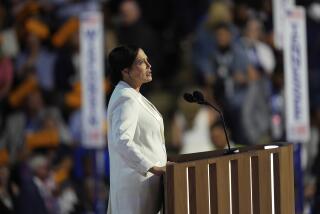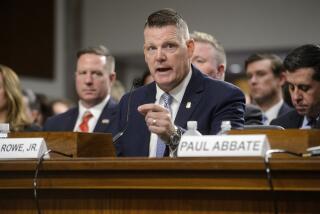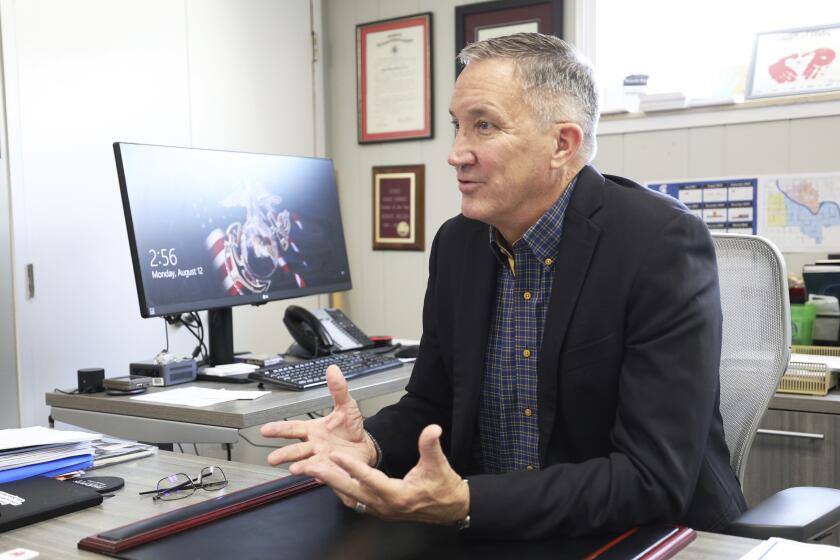U.S. Panel Urges Full Overhaul of Cancer Research
A federal advisory panel Thursday recommended a sweeping overhaul of the nation’s anti-cancer campaign, predicting that--if its present course continues--cancer will surpass heart disease as the nation’s leading killer within five years.
In a report to Congress, the group said that the program suffers from a lack of coordination and a shortage of funds needed to pursue “unprecedented opportunities” in scientific research.
It said that a White House-led effort--including Cabinet-level representation--is needed.
It also called for tougher federal policies against tobacco, including higher taxes, the elimination of tobacco subsidies and of tax deductions for tobacco product advertising, prohibiting tobacco exports and an end to federal funding to cancer research organizations that accept tobacco industry support. Tobacco use has been scientifically established as the primary cause of lung cancer and has also been associated with several other types of cancer.
The panel, a subcommittee of the National Cancer Advisory Board--an independent group of outside experts that advises the National Cancer Institute--characterized existing cancer care for the poor, elderly and uninsured as inadequate and said that most congressional health reform measures would have worsened an already bad situation by failing to provide explicit “universal cancer-care coverage.”
“We are not taking full advantage of opportunities for prevention,” said Dr. Paul Calabresi, a professor of medicine at the Brown University School of Medicine, who served as chairman of the subcommittee. “Patients’ and survivors’ quality of life can be improved. Most importantly, the advances we have made in prevention, diagnosis, treatment and rehabilitation are not available equally to all of the people.”
One in three people will be diagnosed with cancer during a lifetime and an estimated 1.2 million new cancer cases will be added this year to the 8 million Americans alive today who already have been diagnosed.
Although enormous medical advances have been made, the incidence of cancer has risen 18% and the death rate 7% since 1971, when Congress launched the nation’s “war on cancer” by passing the National Cancer Act.
The 15-member panel--made up of representatives from cancer research, medicine, nursing, industry, communications and patient advocacy--was asked by Congress to evaluate why cancer is still on the rise after $23 billion in spending since 1971.
The report called for a detailed evaluation of cancer research programs and priorities, the elimination of excessive earmarking or redirection of research funds and an expansion of the National Cancer Institute’s network of cancer centers.
The American Cancer Society praised the report, particularly its emphasis on health reform and the need to crack down on tobacco.
It “adds substantial new weight to the need for health care reform that provides universal access to care,” said Dr. Irvin Fleming, president of the society. Also, the report “adds to the inevitability that tobacco taxes will be raised substantially.” Such a tax increase “is the single most effective way to reduce smoking rates and especially among children,” he added.
The committee also noted that more support is needed for so-called translational research--the bridge connecting basic research to its application in humans. Such researchers are becoming “an endangered species,” and the result will be that “the transfer of knowledge from the laboratory to the people will be delayed needlessly,” the report said.
The panel said that an additional $60 million per year--or about $1 million for each NCI-approved cancer center--should go toward encouraging translational research. This money is especially needed now because support that formerly came from pharmaceutical and biotechnology industries “is diminishing rapidly” because of health reform pressures, the panel said.
More to Read
Sign up for Essential California
The most important California stories and recommendations in your inbox every morning.
You may occasionally receive promotional content from the Los Angeles Times.






